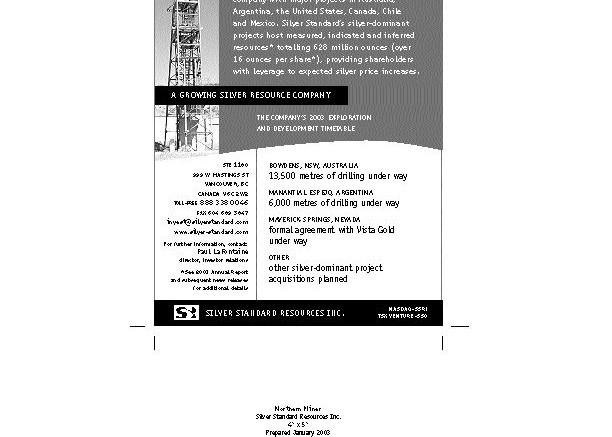Kenyan approval of the environmental management plan for the Kwale titanium-sands project sent shares in
The approval brings the project, situated southwest of Mombasa, one step closer to construction. All that remains is for the company to present a plan covering mitigation.
In mid-December 2002, after years of study, the Kenyan government granted Tiomin a 16-year mining lease for Kwale. The lease, which can be renewed for a further 10 years, gives the junior exclusive right to mine and process Kwale’s heavy mineral sands. The lease is to become official in April, after a 90-day period of public scrutiny.
The government has also given the go-ahead for a port facility at Shimoni.
Kwale hosts a resource of 200 million tonnes of mineral sands grading 2% ilmenite, 0.5% rutile and 0.3% zircon. Plans call for an open-pit mine capable of producing 300,000 tonnes ilmenite, 38,000 tonnes zircon and 75,000 tonnes rutile annually for six years. The mineral concentrates are separated from the sands via gravity, electrostatic and magnetic separation.
The deposit, which comprises two large Pliocene aeolian dunes, is on a 4.5-sq.-km property about 10 km inland from the coast.
Kwale’s feasibility study projects cash flow at US$40 million per year for the first six years, resulting in a payback period of three years. Kwale’s total mine life is pegged at 13 years. The capital cost estimate is US$120 million.
Looking forward, Tiomin intends to develop the Kilifi and Mambrui titanium-bearing mineral sands deposits, which lie to the northeast. Extensive mineralization has also been outlined on the Vipingo exploration licence, in the same area.
The project has been criticized by foreign environmental groups, who commissioned a separate environmental study which argued that the project could end up destroying flow patterns of surface and ground water, and possibly contaminate a major aquifer. The study contradicted a more thorough environmental impact assessment done by consulting firm Coastal & Environmental Services. That assessment concluded water levels in the aquifer would not be drawn down significantly, and that there was very little potential for groundwater contamination.
In early 2002, a lawsuit launched by three local landowners was dismissed. They had obtained an injunction preventing further work on the project.
Meanwhile, the company is negotiating to expand the lease to cover 15% of the mineralization found on the defunct Ramisi sugar cane plantation.
The company is trying to arrange long-term sales agreements to support project financing and is in discussions with engineering companies concerning the design and construction of the mine and mill.
Earlier this month, Tiomin wrapped up a fully subscribed private placement of 20 million shares priced at 21 apiece for proceeds of $4.2 million. Tiomin now has 88.8 million shares issued and outstanding.
Under a recently renegotiated loan facility with Resource Capital Fund, Tiomin will use US$1.36 million from the financing to pay down a US$2-million loan facility from RCF.


Be the first to comment on "Kenya gives nod to Tiomin’s Kwale"